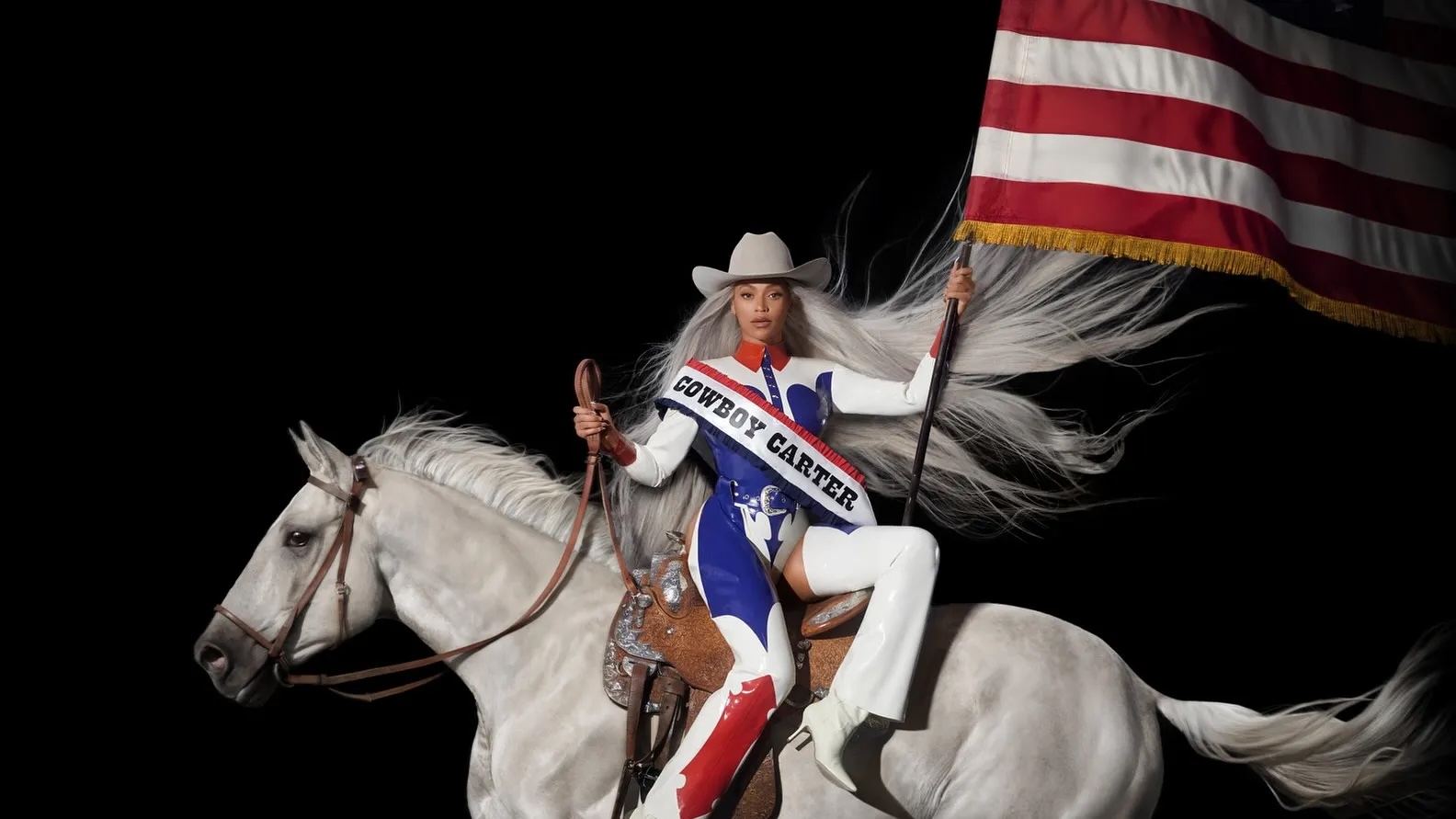Given that contemporary pop music is stagnant, Beyoncé’s country-inspired album Cowboy Carter was bound to be something of a sensation. Its chief significance is not aesthetic—the recordings are simultaneously too slick and underdeveloped. Undeniably an impressive vocalist, the pop diva nevertheless failed to create a single memorable song. But for the politically minded, it provides an opportunity to solve the problem of country music.
Former first lady Michelle Obama, for instance, piled up platitudes:
.@Beyonce, you are a record-breaker and history-maker. With Cowboy Carter, you have changed the game once again by helping redefine a music genre and transform our culture. I am so proud of you! pic.twitter.com/oXKao4UpK9
— Michelle Obama (@MichelleObama) April 2, 2024
She ended her commendation with the predictable call to activism:
Together, we can stand up for what we believe in, and we must do that at the ballot box this year. The issues that impact us most are on the ballot across the country — from equal pay and racial justice to reproductive healthcare and climate change. And as Queen Bey says at the…
— Michelle Obama (@MichelleObama) April 2, 2024
Obama was outdone by Vice President Kamala Harris, whose accolades included a venture into music history: “Beyoncé: Thank you for reminding us to never feel confined to other people’s perspective of what our lane is. You have redefined a genre and reclaimed country music’s Black roots.”
Kamala needs better interns because “Black roots” of country music is an overstatement.
Country is a creole American genre, formed in the New World out of a multitude of elements—from Hawaiian steel guitars to Italian mandolins—so, naturally, black American styles like blues and spirituals informed it as well. However, it was mostly the music of the white Appalachian underclass.
Appalachians themselves are descendants of the migrants from the Scottish Highlands, albeit they assimilated into the various clans and nations with whom they came into contact in the New World. Their Scotch Irish forefathers were viewed with disdain by other settlers, so as soon as they set their feet on Colonial America soil, the Highlanders were immediately waved into the backcountry. Then and now, coastal living was for the elites.
Since before the Revolutionary War, the Scotch Irish were known as a warring people of questionable virtue, and if country music is the witness, this story didn’t change. By midcentury, they’d spread out of their Appalachian homeland, menacing the streets of Bakersfield, as in the Homer Joy song, and fleeing pregnant girlfriends to Dover—as in Dolly Parton’s. One of the core groups to form the backbone of the new nation, they were—and still are—fierce fighters and freedom-loving libertarians, a combination that ingratiated them to the elites, even more than their family traditions of drunken debauchery—in the style of Hank Williams Jr.
The problem with country music is not so much its association with the unwashed and the toothless, but its singular charm. When I came to the U.S. in 1990, the correct answer to the question “What kind of music do you like?” was “Everything but country.” The lowbrow, “redneck” tunes were beneath the multicultural, open-minded, and urbane kids. But now that these 90s hipsters are middle-aged and their CD towers are collecting dust in their garages, they’re playing in country cover bands. Turns out, the rednecks had an authentic art form that transcended ideology.
It’s not that the country stars are more conservative than most performers, but their art is compelling regardless of political leanings, and many liberals simply can’t resist it. The universal appeal is precisely the reason that the long march is coming for it. The people who make everything about politics can’t tolerate ambiguity or allow aesthetic experience to stand on its own. Unfortunately, America trained generations of youth to politicize everything that meets their eye.
Both Obama and Harris suggest we take that genre and fill it with progressive content or, as they put it, redefine country. That’s why they inverted cultural appropriation into Queen Bey’s right. The charmingly outdated Harris even advised her to never feel confined to other people’s perspective of what our lane is. Sorry, but that’s a Boomer idea about freedom of expression!
The domestication of country works in several ways. One, to sensationalize a black performer as a major country name and a definitional figure is a bit patronizing. Charlie Pride was a country superstar and Ray Charles and Tina Turner dabbled in it. Another is to promote drag queens who parody it, thereby alienating it from all authentic meaning.
Yet another is the introduction of heavy-handed feminist messaging. Scotch Irish women are not exactly shrinking violets; they originally played the role of helpmates to frontiersmen. But the persona of an independent woman, single well into her 30s, like Taylor Swift, is a contemporary invention of dubious aesthetic purpose.
What do feminists like Beyoncé get to add to country? Judging by her cover of Dolly Parton’s “Jolene,” not much. Parton wrote “Jolene” in 1973 in a fit of jealousy. We hear her begging a red-haired beauty to please don’t take [my man] just because you can. The refrain Jolene, Jolene, Jolene sounds like a cry for mercy.
Feminists originally hated the song, which they saw as betrayal of the sisterhood. They had no love lost for Dolly, whom they found to be white trash. To the everything but country types, she personified Amerikkkan tackiness—and worse. Parton was redeemed decades later, however, and reimagined as a would-be feminist even though the performer, who was propelled into stardom for telling sentimental stories from the female perspective, resists labels and said she doesn’t hate all men.
Beyoncé did not understand her “Jolene” assignment. She yes-queened the song, changing the lyrics to warn the desperate Jolene to not come for her man because Your peace depends on how you move—the situation already described, far more convincingly in, for instance, Loretta Lynn’s “Fist City.” Jolene I know I’m a queen Jolene, reports Beyoncé. So was Parton—at the time she composed the hit, she was a newlywed country-music bombshell. Yet she had it in her to bare her soul before the audience, something of which strong womyn Beyoncé appears to be incapable.
“Jolene” is a very unusual composition—not many songs honestly and directly broach the subject of romantic competition between women. Yet it’s a big part of the female experience. Universal and deeply sentimental offbeat stories like “Jolene” are the key to the country sensibility. Unfortunately, in the past few decades, raw, authentic emotions have withered away, together with originality, and so Beyoncé immediately slid into the gimmick territory—not very different from drag-queening, actually. Visually, it’s an easy temptation with the rhinestone cowboys. The cover of her album, for instance, shows her riding a horse in luminous chaps, with hair extensions blending into the mane. She is holding an American flag conspicuously cut off at the top. She’s all glamour.
Country is chock-full of gimmicky novelty songs—nothing wrong with that. They are sincere and down-to-earth and give voice to simple folk. Beyoncé, on the other hand, was a regular in the Obama White House. And while her image was used in the service of the agenda of the most powerful man in the world, Appalachia languished in poverty, the opiate epidemic, and environmental disaster.
Country music welcomes infusions of new ideas, and an already established performer like Beyoncé doing something country-identified is a shoo-in for Nashville. These attempts at domestication please powers that be and give the elites absolution to enjoy the art, but they are missing the vulnerability and accessibility of the Hillbilly heritage. And I’ve heard there is a special place in woke hell for all those who profit off the backs of the downtrodden.

